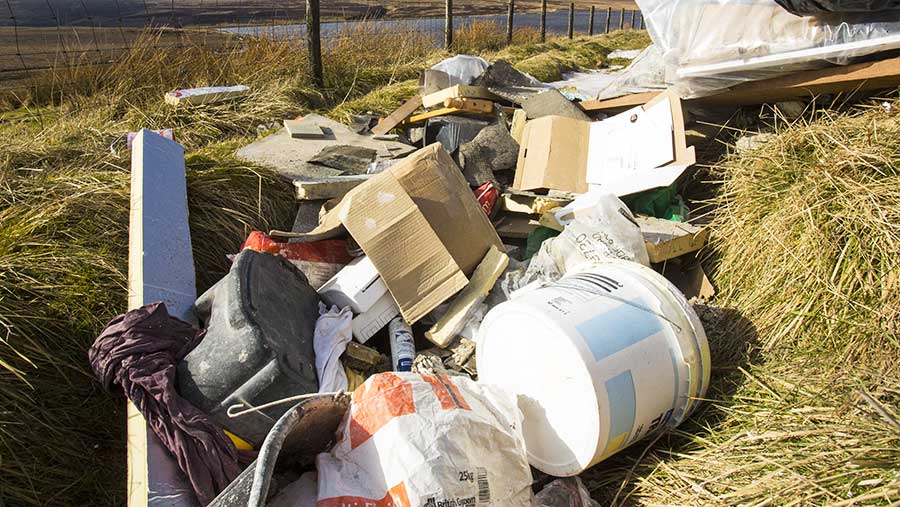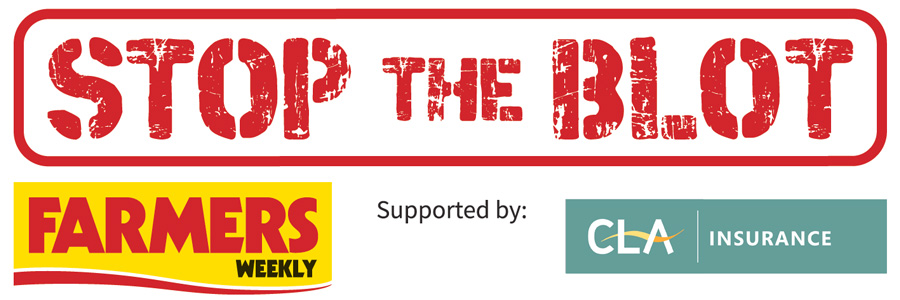Fly-tipping predicted to rise as charges increase
 © Global Warming Images/REX/Shutterstock
© Global Warming Images/REX/Shutterstock Farmers in Oxfordshire fear increased charges to dump waste at recycling centres could see fly-tipping incidents soar in the countryside.
From 1 October, residents in the county face new charges to dispose of some individual items, ranging from £1.50 to as much as £10.
For example, it will cost £1.50 to dispose of 25kg of soil and rubber, £2.50 for a bag of plaster, £5 for a car tyre and £10 for a sheet of plasterboard.
See also: Revealed – the burden of fly-tipping on farms
Oxfordshire County Council stated on its website that as these items are classified as “construction waste” rather than household waste, they are expensive to dispose of, hence the introduction of the charges.
The new charges will replace the current system, which allows residents to deposit up to three items for free – then pay £1 for each additional item.
NFU South East spokeswoman Isobel Bretherton said the union is aware local authorities are working with reduced resources and there is no easy answer to the costs of waste disposal.
However, she believes any increase in charging is likely to increase fly-tipping on farmland and the wider countryside. She said: “It leaves farmers landed with the cost of disposal, which is unacceptable.”
Farmers in Somerset have criticised a similar new waste disposal charging scheme introduced in the county.
Farmers Weekly has launched Stop The Blot, a major campaign in association with CLA Insurance, to tackle the issue of illegal dumping in the countryside.
Fly-tipping survey
A survey of farmers and landowners run in association with CLA Insurance found that two-thirds had been affected by fly-tipping.
The survey also found:
- More than half of farmers and landowners agree fly-tipping is a significant issue in their area.
- Research has shown 85% of farmers have taken measures to prevent fly-tipping such as installing CCTV or security lights, padlocking entrances or blocking gateways.
- Each incident of fly-tipping on private rural land costs the owner on average £844 to clean up.
- Only 13% of farmers and landowners have insured their business against fly-tipping.
Source: Farmers Weekly/CLA Insurance online survey July 2017
Stop the Blot
Fly-tippers are ruining our countryside and clean-up costs are crippling farm businesses. That’s why we have launched our Stop the Blot campaign to help raise awareness of the damage caused by fly-tipping and tackle the growing epidemic on farms.

